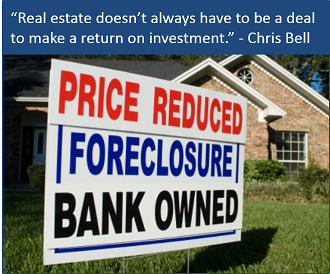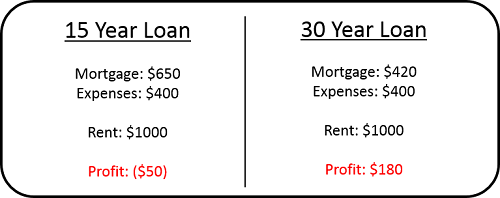 |
Chris Bell | 'There are tons of different factors that go into ranking well, but the biggest is high quality content.' |
| - David Sinick |
 |
Chris Bell | 'There are tons of different factors that go into ranking well, but the biggest is high quality content.' |
| - David Sinick |
 I just signed a Purchase and Sale agreement to buy a 2 bedroom condo in Merrimack NH for $110,000. I could have offered $105,000 or waited for a foreclosure or short sale to come on the market, but I was more interested in the return on investment rather than the purchase price. Instead of comparing recent sales in the area or current inventory on the MLS, I looked at the monthly figures, monthly cash flow, tax deductions and rental income.
I just signed a Purchase and Sale agreement to buy a 2 bedroom condo in Merrimack NH for $110,000. I could have offered $105,000 or waited for a foreclosure or short sale to come on the market, but I was more interested in the return on investment rather than the purchase price. Instead of comparing recent sales in the area or current inventory on the MLS, I looked at the monthly figures, monthly cash flow, tax deductions and rental income.
Monthly figures involve the mortgage payment, monthly condo fee, monthly taxes and monthly insurance. Each of the monthly expenses change for each home or condo which makes it important to look for low condo fees, low taxes and the best insurance rate possible. As homes increase in value taxes and condo fees also increase, but it's not as relative as you might think. Tax assessments are only done once every 5 years and can vary dramatically for comparably priced homes. Condo fees also vary depending on the amount of units, property conditions and possible assessments. This particular home, my 4th piece of property, has low fees across the board along with a low mortgage payment over 30 years.
Minimal expenses translate into additional cash flow. Buying real estate long term is a great investment, but beginners need to understand that increasing monthly cash flow is just as important. For example, getting a 15 year mortgage is not always better than getting a 30 year mortgage because your monthly cash flow will decrease dramatically. The additional funds that you pay will drop your mortgage loan faster than a 30 year mortgage, however you won't be able to continue increasing your real estate portfolio if your expenses continue to outweigh your income.

Everything except principal is tax deductible for real estate investments, however your profits will likely exceed the expenses. That's why depreciation is a great real estate tax deduction in which the worth of your home is divided by 27.5 years and considered an expense. It's often called the "phantom expense" in the industry because you're not paying it, but you can add it as an expense as if you did. Typically, if you end up making an annual profit of $5000 your depreciation will cover that, so you don't have to pay taxes on your profits.
There are numerous variables when buying real estate as an investment including rental income. It can rent for more or less than anticipated and tenants can move in and out more than anticipated. However, if you hire a professional they will help you set the rent at a fair market price, screen a good tenant and set up a solid lease that's difficult to break. I encourage you to act as if you're a tenant before purchasing your property by looking for a rental comparable to your purchase.
This particular property over 30 years costs me about $800 per month and I plan to rent it for about $1200 per month. My return on investment equates to this calculation: ($400 profit x 12 months = $4800 / $22,000 down payment) which is about 22% annual ROI (tax free). If I had paid cash for the property I would have invested $110,000 and made about $800 x 12 = $9600, or 9% ROI. Even if I had $110,000 in the bank I wouldn't purchase the property in cash because it I'd get a smaller return. Leveraging money is an important factor that will make you a much higher return on investment.
Written by: Chris Bell
Chris Bell Real Estate